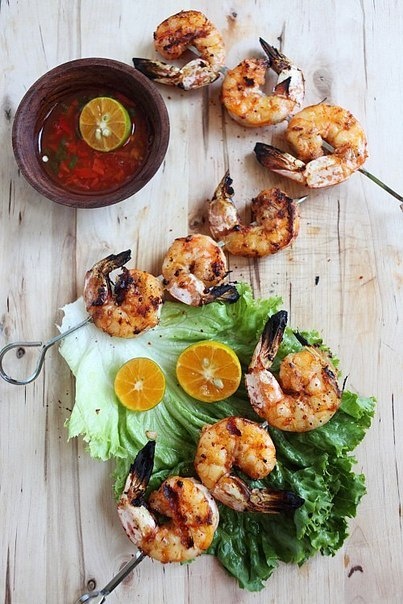I’m not sure if you’re aware but prawns – or shrimp – are an ecological and ethical disaster waiting for a barbie to be thrown atop.

I wasn’t…until recently. My uncle Pete was a trawler. We ate them every Christmas. And in fried rice when Mum made it for one of my brother’s birthdays most years. But I, like many of us, care more about this kind of thing these days. I care, and I want to act right. So prawns…
As with all my sustainable eating posts, I don’t suggest banning foods. I advise making better/best choices. And using up leftovers and the whole animal/vegetable/mineral. Wastage is the real ethical/eco crime, to my mind. In time for Christmas I decided to research this bottom dweller issue and share what I found, so you too can get real with shrimp!
Why are prawns a problem?
The bycatch is shocking: I’ve heard anecdotally that
for every prawn caught, 27 other species are caught in the bycatch and tossed away.
World Wildlife Fund (WWF) best describes this issue here, claiming:
“Tropical shrimp trawling (TST) has one of the largest bycatch rates of all fishing techniques and often damages the ocean´s seafloor.”
Bottom trawling is shocking: it destroys coral and has a detrimental affect on the seafloor. Seafloors are vital to the health of coral forests, seagrass beds, kelp forests and deep sea thermal vents.
Many of the prawns we buy are imported. About 70 per cent of the seafood Australians consume is from OS. Which is an issue because many countries don’t fish their prawns sustainably. Tropical shrimp farms in Asia – where much of our prawns come from – destroy coastal mangroves.
So, what to look for?
As I say, I’m not about banning prawns. It’s about getting smart and mindful. There are tricks.
1. Look for Marine Stewardship Council– certified. Ask your monger if the prawns they’re selling are as such. MSC is the biggest fishery standard (with more than 200,000 fish covered in over 15 countries) and therefore this first port of call is probably your safest bet, wherever you are in the world. MSC-certified prawns are trawled on sandy or muddy ocean floors and cause minimal impact to the habitat and ecosystem. But, somewhat contentiously, not all their recommended prawns are low-bycatch.
The Aquaculture Stewardship Council (ASC) is also setting up certification with farms such as Tassal Operations’ Macquarie Harbour Farm becoming the first in Australia to receive certification. As farms start to become certified by them you’ll be able to look out